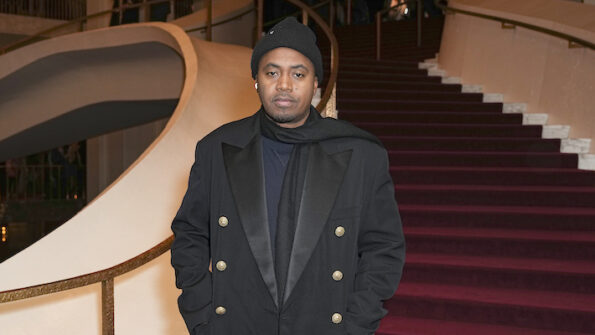Following an impressive battle against Mannie Fresh, there’s no better time to start considering Scott Storch as one of the greatest producers of all time.
The pantheon of great producers has led to some fantastic discussions, with many prominent names being tossed into the hat. Every so often, a case for Scott Storch will be made, though his inclusion in top-five discussions is surprisingly uncommon. A curious development, given his vast discography of hits and more importantly, his unparalleled musical aptitude. Lest we forget, Scott Storch is the piano man, a title he has taken to wearing like a badge of honor.
Though many producers have become capable keyboard players in their own right, Storch is a virtuoso by comparison. Originally dipping his toes in hip-hop as a piano player in , Storch honed his skills as a band member creating and reacting in real-time. No computers, simply instinct and technical prowess. Such skills are the type to ultimately prove invaluable, and before long Storch had developed a signature sound that would soon win over the legendary Dr. Dre.
When speaking to Storch , he explained those sessions ultimately paved the way for the early millennium Aftermath sound to develop. “I came in and had this weird ominous piano-driven sound. It was something I crafted living in the East Coast, and I brought it to the West Coast,” explains Storch. “Dr. Dre harnessed it He understood what to do with that and turned it into a new generation of West Coast music. It went from being Funkadelic, but still cool and dark, to a new orchestral type of thing.”

Denise Truscello/Getty Images
Before long, Storch’s minor-key piano vibe became an integral component of Dr. Dre’s production. Between the years of 1999 and 2004, Storch was essentially the Doc’s right-hand man, anchoring his instrumentals with orchestral flair. It’s no secret that Storch laid down the now-iconic “Still D.R.E.” piano riff. But the contributions only continued. He co-produced and played on Eve’s “Let Me Blow Ya Mind.” He helped introduce G-Unit’s debut album Beg For Mercy with a co-production credit on “Poppin Them Thangs.” He helped compose the spooky trifecta of “Truck Volume,” “Break Ya Neck” and “Holla” off Busta Rhymes’ excellent Genesis project. Together with Dr. Dre, Storch helped bring a hard-hitting and unprecedented darkness to mainstream music, culminating in an era many still revere as Aftermath’s creative pinnacle.
While the nature of Dre and Storch’s in-studio dynamic isn’t exactly common knowledge, the collaborative nature of their relationship has been a sticking point for some critics. Despite the fact that Storch’s creativity and musical ability helped bring a new weapon into the Doc’s arsenal, some have argued that his co-production work isn’t as impressive as one handling lone responsibility. Nevermind that a frequently touted Top-5 contender, Kanye West, has been collaborating on instrumentals for years now. To those people, I would recommend factoring in a producer’s mind and vision for a more specific analysis. Where do they tend to go on a sonic level — which scales and soundscapes do they favor? Coming to such a conclusion is one of the most rewarding journeys a hip-hop head can take.
Storch’s work with Dre made his preference for the minor key very clear; after all, the man himself described his early musical stylings as “ominous.” Yet such a preference was clearly shared by Dre himself, albeit both tended to express it slightly differently. Storch seldom gravitated toward hopelessness like Dre, who exhibited such qualities across Eminem’s Relapselike Busta Rhymes’ “Legend Of The Fall Off.” Instead, Storch seemed to gravitate toward a more anthemic direction, perhaps a testament to his growing repertoire of melodic collaborators. Where the Aftermath days found him working almost exclusively with rappers, some of his biggest solo hits came by way of Chris Brown’s “Run It,” ’s “Cry Me A River” with , and Beyonce’s -assisted “Baby Boy.” The aforementioned songs found Storch experimenting with new sounds, with the latter introducing Middle Eastern-inspired harmonies into his repertoire.

Maury Phillips/FilmMagic/Getty Images
In fact, that stylistic choice would go on to inform a few of his subsequent hip-hop hits, from ’s “Lean Back” to Jadakiss’ “U Make Me Wanna” to 50 Cent’s back to back smut bangers “Candy Shop” and “Just A Lil Bit.” Even his percussion seemed to reflect this harmonic shift, with Storch seeming to favor more rhythmic drum arrangements than his former mentor. Having benefitted from a newfound mastery of the harmonic minor scale and an increasingly vast collection of synthesizers, there soon became a lush quality to Storch’s increasingly versatile production. One that helped him acquaint himself quite nicely with the R&B scene, with Mario’s timeless “Let Me Love You” serving as a prime example.
If last night’s beat battle against the equally legendary Mannie Fresh proved anything, it’s that Storch is easily one of the game’s most versatile hitmakers. Between the years of 2004 and 2006, his run was among the most successful hip-hop has ever seen. It was certainly enough to yield him a substantial fortune, which went on to fuel a lavish lifestyle that would ultimately leave his friend collaborator Fat Joe . And while reckless habits might have spelled his end under different circumstances, Storch is in the midst of a career renaissance, having recently worked with young stars like Russ, Post Malone, Trippie Redd, and . Few can say he isn’t adaptive, showing a willingness to meet an artist on their playing field, no matter their musical background — all while dazzling his fellow stoners with the blinding speed of his piano fingers.



